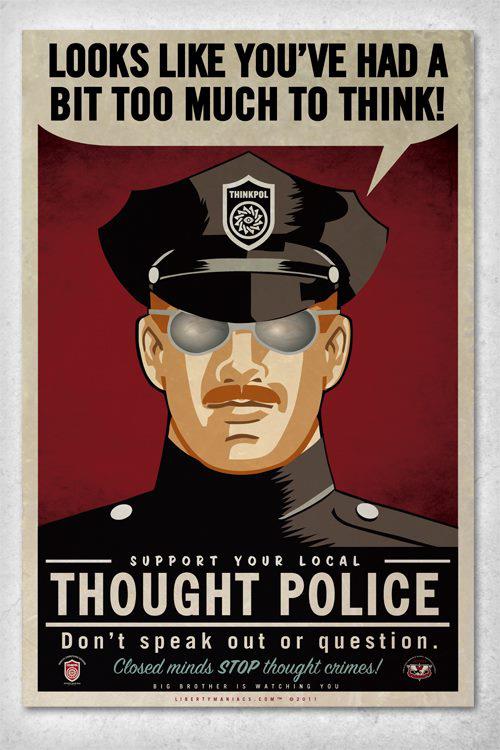Governments Exploit Christchurch Tragedy to Enforce Censorship and Thought Policing

No sooner had the victims of the Christchurch attack fallen than governments were clamoring to mine the tragedy for political capital. Despite the shooting having been live streamed on Facebook, antipodean officials have directed their ire against fringe websites in a desperate bid to control the narrative and criminalize curious civilians.
Also read: Bitcoin Cash Developers Launch Privacy-Preserving Light Client Neutrino
Politicians Can’t Let a Crisis go to Waste
In the wake of the mass shooting that left 50 people dead in Christchurch, New Zealand, the usual activists have emerged to condemn their particular bête noire. Some want greater gun controls, some want a crackdown on online extremism, a few object to violent video games, while others seek greater internet surveillance, enhanced police funding and increased investigative powers. The ability to openly debate emotive issues is an integral part of the democratic process. Few would deny the right of the offended and the grief-stricken to table these topics, even if they might blanche at some of their knee-jerk solutions.
While debate can be healthy, the actions taken by Australian and New Zealand officials has been anything but. Working in cahoots with ISPs, these governments have encouraged the blacklisting of websites – many of which have no connection to the Christchurch shooting. Even more disturbingly, police and prosecutors have detained individuals whose “crime” is to have watched video footage of the incident. The criminalization of individuals for accessing materials has had the reverse effect, heightening interest in the footage and fueling conspiracy theories in a classic case of the Streisand effect.
Translation:
If you say something we don't like we'll lock you in a cage and shoot you if you resist.#hypocrisy https://t.co/PgIDRt38mA— Roger Ver (@rogerkver) March 17, 2019
Blocked, Banned, Prosecuted and Detained
Across New Zealand and Australia, internet users have shared stories of being barred from popular websites. These include 8chan, where the shooter first shared the link to his livestream and manifesto, 4chan, Liveleak, Zero Hedge, Kiwi Farms, free speech video site Bitchute and Gab’s Dissenter service, which enables comments on third party websites. Of these websites, only 8chan has a direct connection to the shooter, while the site that played the most pivotal role in spreading the video – Facebook – has been untouched.
We've started temporarily blocking a number of sites that are hosting footage of Friday’s terrorist attack in Christchurch. We understand this may inconvenience some legitimate users of these sites, but these are extreme circumstances and we feel this is the right thing to do.
— Telstra News (@Telstra_news) March 18, 2019
The video of the Christchurch massacre is undoubtedly disturbing, yet many are struggling to understand why authorities are so desperate to suppress it. Given the prevalence of high definition ISIS videos that depict beheadings, burnings, stonings, and stabbings in far more gruesome detail, it is unclear why this particular incident should be treated differently to the scores that have gone before including the Bataclan massacre and the Charlie Hebdo shooting.
One NZ man, accused of sharing the the livestream Christchurch video while cheerleading the massacre, has been locked up and denied bail. He could face a maximum of 14 years in jail. Free speech campaigners, among whom cryptocurrency supporters feature prominently, are objecting vociferously to being told what to watch, read and think. They see the campaign to criminalize internet users interested in learning more about the shooting from first-hand sources as the thin edge of the wedge. Censorship is a slippery slope.

Crackdown Strengthens the Case for Censorship-Resistant Platforms
As government-led censorship has ramped up, interest in censorship-resistant services, and in finding ways to circumvent ISP filtering, has intensified. Users of the websites caught up in the New Zealand-orchestrated ban have been sharing information on VPN use, adjusting DNS settings, and tools that bypass ISP deep packet inspection.
Pro-privacy and pro-speech cryptocurrency users are already cognizant of the alternatives to centralized platforms that can be easily blocked, censored and shut down. While social media giants such as Facebook and Twitter rushed to delete links to footage connected to the shooting, on anti-censorship platforms like the BCH-powered Memo and ETH-based Peepeth, it was business as usual. For censorship-proof file upload and information sharing, there’s Bitcoinfiles, and Bookchain for uploading documents that are tethered to the BCH blockchain. As the Bookchain website explains, “Bitcoin Cash is the perfect platform to store important and “dangerous” things. Items on the blockchain cannot be subject to censorship, banning or silencing for the duration of the internet.”

For as long as the internet has existed, it has been filled “dangerous things” that governments have sought to outlaw and eradicate. From 3D gun blueprints to encryption itself, and from violent games to message boards that promote open discourse, the list of targets is as long as it is incongruous. As incidents like the Christchurch shooting provoke copycats and violent responses, such as today’s fatal shooting in Utrecht, the only certainty is that government efforts to control the narrative and filter the internet will continue. Meanwhile, those who prefer their information unvarnished and unbowdlerized will seek sanctuary in pro-privacy and anti-censorship platforms that are beyond the reach of the thought police.
What are your thoughts on government attempts to control the flow of information in regards to the Christchurch shooting? Let us know in the comments section below.
Images courtesy of Shutterstock.
Need to calculate your bitcoin holdings? Check our tools section.
The post Governments Exploit Christchurch Tragedy to Enforce Censorship and Thought Policing appeared first on Bitcoin News.
from Bitcoin News https://ift.tt/2UJ3mIK
Labels: Bitcoin
0 Comments:
Post a Comment
Subscribe to Post Comments [Atom]
<< Home